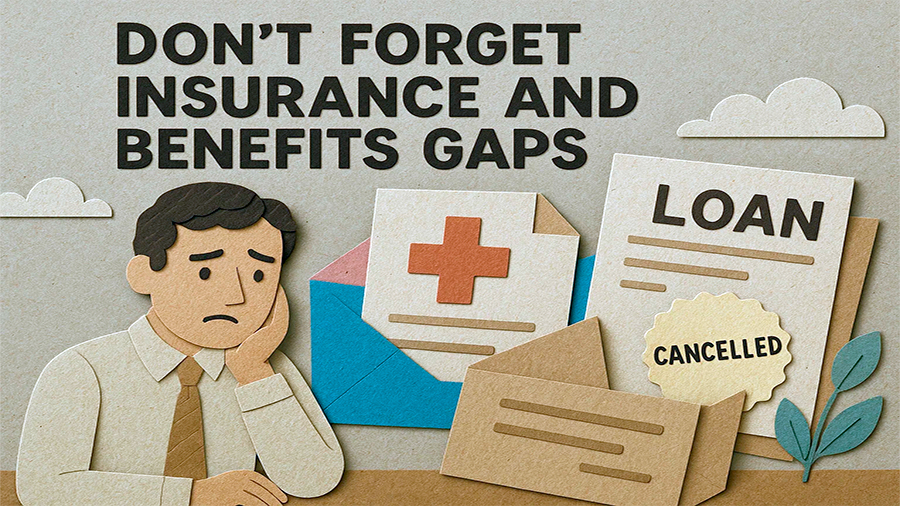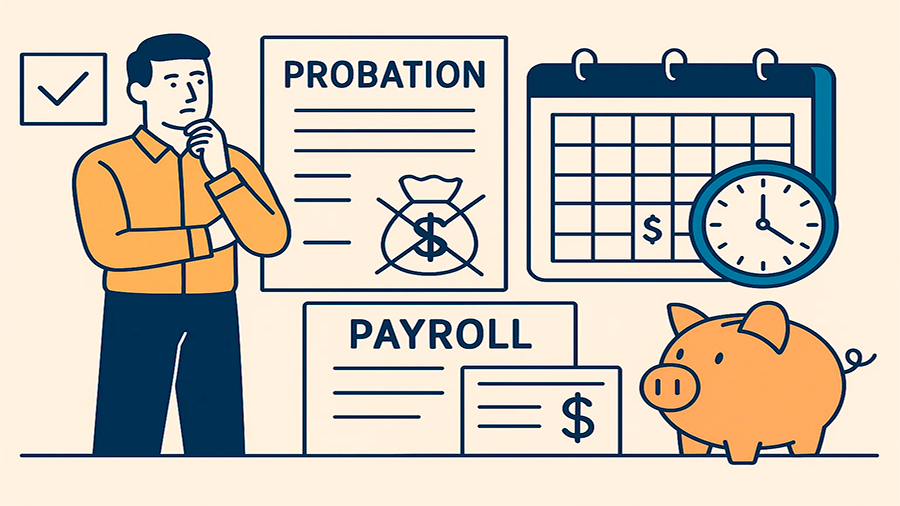Financial Risks When Changing Jobs and Having a Loan
Switching jobs can feel like hitting the refresh button on your career. New people, better pay, more growth — or at least, that’s the hope. But if you’ve got an active loan, that move can get complicated fast. Most of us don’t think about our debts when signing an offer letter. We assume the paychecks will keep coming, and that the loan payments will take care of themselves. But what happens if there’s a delay? Or if the new job doesn’t work out? Financially, it’s riskier than it looks. Let’s break down why changing jobs during a loan term can be a hidden trap — and what to do to stay ahead of it.
Why Your Loan Doesn’t Care About Your Career Plans
Your lender isn’t watching your career moves. Your loan terms don’t change just because you’re changing jobs. The due dates, interest rates, and penalties stay exactly the same — whether you’re working, transitioning, or between gigs. That’s the first problem: life changes, but your debt doesn’t budge. If there’s any break in income, even for a month, the risk of missing a payment jumps. And when that happens, the consequences can be larger than expected.
Even a short lapse — one missed payment — can lead to late fees, interest spikes, and credit score damage. Worse, if your new employer has a delay in their first payroll cycle, you might be looking at 30–45 days without income. That window is where things often go wrong.
What Can Go Wrong Financially After a Job Change
The biggest risk is obvious: losing your paycheck, even temporarily. Most people live paycheck to paycheck, especially when repaying personal loans, mortgages, or auto loans. Without income, one or two bills might slip — and lenders don’t wait. Even if you know the money’s coming, they don’t see your job offer. They just see a missed deadline.
And if your new job doesn’t work out? That adds another layer of risk. A mismatch in expectations, a failed probation period, or a surprise layoff can send you back to square one — but this time with more stress and unpaid obligations stacking up.
| Event | Potential Consequence |
|---|---|
| One missed payment | Late fees, reduced credit score |
| Job delay (long onboarding) | Cash flow disruption |
| Unexpected job loss | Increased risk of default |
| Shortfall in first paycheck | Difficulty covering fixed bills |
Loans don’t adjust to life transitions. They keep moving on their own timeline. You need to be ready before they do.

The Role of Probation Periods and Delayed Payroll
Probation periods are common in new jobs — but they don’t just mean less job security. In some cases, probation means no access to certain benefits or payroll advances. You might not qualify for relocation assistance, early pay programs, or internal loans. This matters if you were counting on that buffer to manage your loan obligations during the transition.
Another issue is payroll timing. Some companies only pay monthly, or pay mid-month for prior work. If you start on April 3, you might not get paid until May 15. That’s a long time to float loan payments out of pocket — especially if you haven’t budgeted for it.
Ask These Questions Before You Resign
- When will I receive my first paycheck?
- Is there a probation period? What does it affect?
- Are there any gaps in income between jobs?
- Can I access any payroll advances if needed?
Knowing these answers before quitting your current job can make or break your transition financially.
What If You’ve Already Signed the Contract?
If the new job is locked in, it’s not too late to prepare. First, review all your upcoming loan payments for the next 60 days. Mark the due dates, and double-check what’s auto-debited. If you expect a paycheck gap, start setting aside enough to cover those payments in advance. That small emergency buffer can protect your credit score and avoid fees.
Second, talk to your lender. Some allow short-term deferments or payment flexibility — especially if you ask before a payment is missed. Don’t wait until after. Communicating early shows responsibility and might buy you time without damaging your record.
If your new job comes with a sign-on bonus, resist the urge to spend it. Use it as a transition fund. It’s tempting to celebrate, but if things get tight in the first month, that bonus becomes a lifeline — not just a perk.
Multiple Loans? You Need Priorities
If you’ve got more than one loan, things get complicated quickly. In a financial pinch, you may not be able to cover everything — which means deciding what to protect first. Start with anything that reports to credit bureaus, like personal loans, credit cards, or mortgages. These can affect your long-term financial standing. If one payment must be late, make sure it’s one that carries the least impact.
| Loan Type | Impact of Missed Payment |
|---|---|
| Mortgage | High — affects credit and home ownership |
| Car loan | Moderate — possible repossession risk |
| Credit card | High — interest penalties and credit score hit |
| Buy now, pay later plans | Low to moderate — late fees, but limited credit impact |
If you need to delay payments, always notify your lenders — and do it before the due date. You might be surprised how flexible they can be when you’re proactive.

Don’t Forget Insurance and Benefits Gaps
During job transitions, people often lose access to employer-based benefits. If your health coverage lapses, even a small medical bill could put more pressure on your finances. If your loan included payment protection insurance tied to your old job, it might end as soon as you leave. That’s another reason to plan ahead — not just for your income, but for what stops when your job does.
If your new job doesn’t offer insurance right away, consider short-term health plans or COBRA if available. The cost may feel high, but so is the risk of uncovered emergencies when you’re already financially stretched.
How to Build a Safety Net Before You Jump
Not every job change leads to financial trouble. But if you’re moving with a loan hanging over you, the smartest move is to prepare for bumps. Start by saving at least one month’s worth of loan payments before leaving your current role. Even a small buffer makes a difference.
Next, review all your auto-pay settings. If your account balance drops too low and auto-pay hits, you might trigger overdraft fees. You don’t want one missed paycheck to lead to multiple penalties. Adjust your payment schedule if needed.
<pFinally, avoid taking on any new loans or credit just before the transition. It might feel like a way to give yourself breathing room, but it adds to the pressure. Get through the first 60–90 days in the new role before making new financial commitments.
The Conclusion
Changing jobs is exciting, but when you have a loan, it can also be risky. Missed payments, income delays, benefit gaps — all of it adds pressure when you’re supposed to be moving forward. The key is to plan early, build a buffer, and stay one step ahead of your payment schedule. Most financial problems during transitions don’t come from bad decisions — they come from small surprises that snowball. With the right prep, you can make your career move with confidence — and without falling behind on what you owe.
